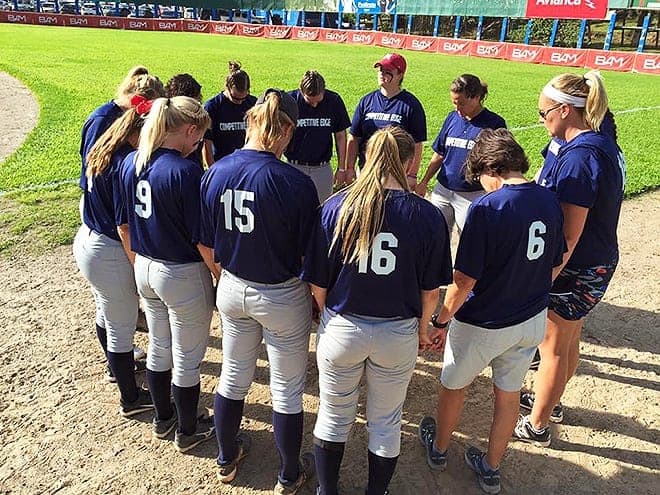Liberals hold on to power (but just barely)
Saskatchewan goes blue
Another federal election has come and gone after Justin Trudeau and the Liberals won a minority government on Monday, Oct. 21.
The governing Liberals won a total of 157 seats, the Conservatives, returning as the official opposition, won 121, the Bloc Québécois claimed a triumphant 32 seats, the NDP managed to cling on to 24 seats and the Greens earned three. Former Liberal cabinet minister, Jody Wilson-Raybould won her riding of Vancouver Granville as the House of Common’s only independent.
Yves-François Blanchet helped to breathe new life into the Bloc, shaking up dynamics in the balance of power and contributing to the Liberals loss of seats. Québec has felt unrepresented in Ottawa and Blanchet represented the promise of giving Québec a stronger voice in Parliament.
Jagmeet Singh’s campaign was slow to start but saw an inspiring surge in the two weeks leading up to election day. Polls on Sunday the 20th were showing the NDP at a seat count of 38, which looked more like 18 in September. The end results were still less favourable than had been the party’s hope, but Singh was able to make a name for himself and left a lasting impression as a leader in voters’ minds.
This was thought to be a critical election for the Greens, with climate change at the forefront for many. However, after only earning two additional seat this time around, it would appear that the majority of Canadians are not ready to view the Green Party as a multi-issue party. Rumours of May stepping down as a leader began to circulate after last Monday’s vote and, while May has expressed a desire to pass on the torch, she has no immediate plans to do so.
Maxime Bernier lost his seat in Beauce, Québec to Tory Richard Lehoux, creating a bleak future for the new People’s Party of Canada (Editor’s note: good riddance).
The Liberals lost 29 of the seats that they held previously, while their Conservative counterparts were able to elect an additional 23 seats to their existing 98. The NDP lost a staggering 18 seats, which were happily claimed by the resurgent Bloc who added 22 to their seat count. The Green party managed to pick up two seats from their 2015 results, one in New Brunswick and one in British Columbia.
Ralph Goodale of Regina was one of the Liberals to lose his seat. Michael Kram of the Conservatives was elected as his successor, defeating Goodale by more than 7000 votes. Goodale had held his Regina Wascana seat for 26 consecutive years. Goodale has long been regarded as a popular, well-liked politician who dutifully serves his constituents.
This fall, Goodale fell victim to a campaign sponsored by a third-party advertiser, Canada Growth Council. Billboards with the slogan, “Send Trudeau a message: Vote out Ralph Goodale,” sprang up across the city. One of Canada Growth Council’s three directors is University of Regina alumnus, Tyler Willox who was a recipient at this fall’s Alumni Crowning Achievement Awards. Willox received recognition for being an “outstanding young alumni leader, innovator, business leader, tireless volunteer.”
This was one of four Saskatchewan seats that went blue this election, creating a Conservative washout across the province. The NDP’s Sheri Benson of Saskatoon West and Georgina Jolibois of Desnethe-Missinippi-Churchill River along with the expelled, Erin Weir, all lost their seats.
The Liberals failed to elect a seat in either Saskatchewan or Alberta, leaving these provinces without representation in the governing party. In his election night speech, Justin Trudeau directed a comment to the people of Saskatchewan and Alberta, stating, “I’ve heard your frustration. I want to be there to support you.”
Saskatchewan Premier, Scott Moe, was quick to comment and with characteristically vague language demanded a “new deal with Canada.” Moe went to on to detail that this deal should include the cancelling of the carbon tax, a restructuring of the equalization formula, and allow Saskatchewan and Alberta to get their products to market.
Mikayla Koronkiewicz is in her third year at the University of Regina studying Politics, Philosophy and Economics. Koronkiewicz points to growing sentiment of dissatisfaction in the West.
“Conservatives usually recognize this idea of Western alienation, this idea that the West feels disconnected from the Federal government: they’re periphery, they’re the economic engine and Ottawa is using them. That’s always been an idea and Conservatives have always been advocates of such. What’s really come out of this election is this movement away from alienation to complete separatism.”
“[The Liberals] have a lot of work to do in terms of uniting Canada, which has always been a problem because Canada is so diverse, but it’s really distinct right now with climate change.”









